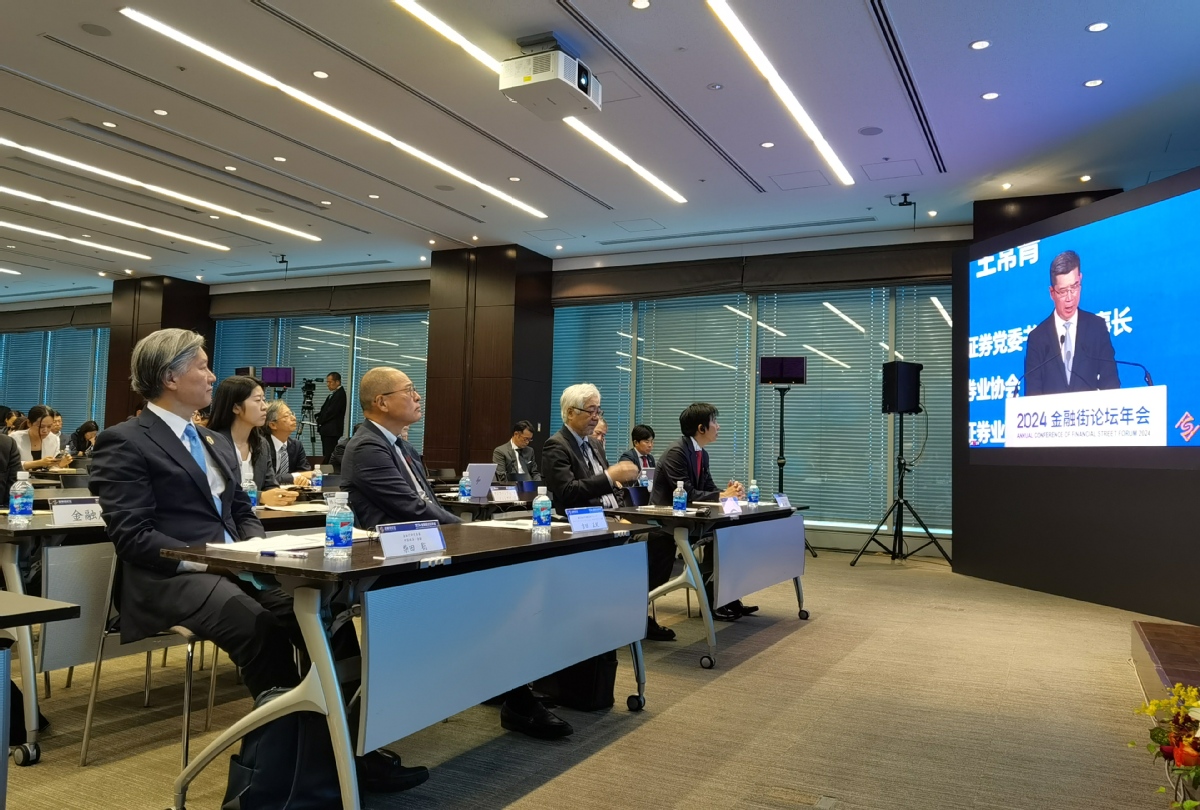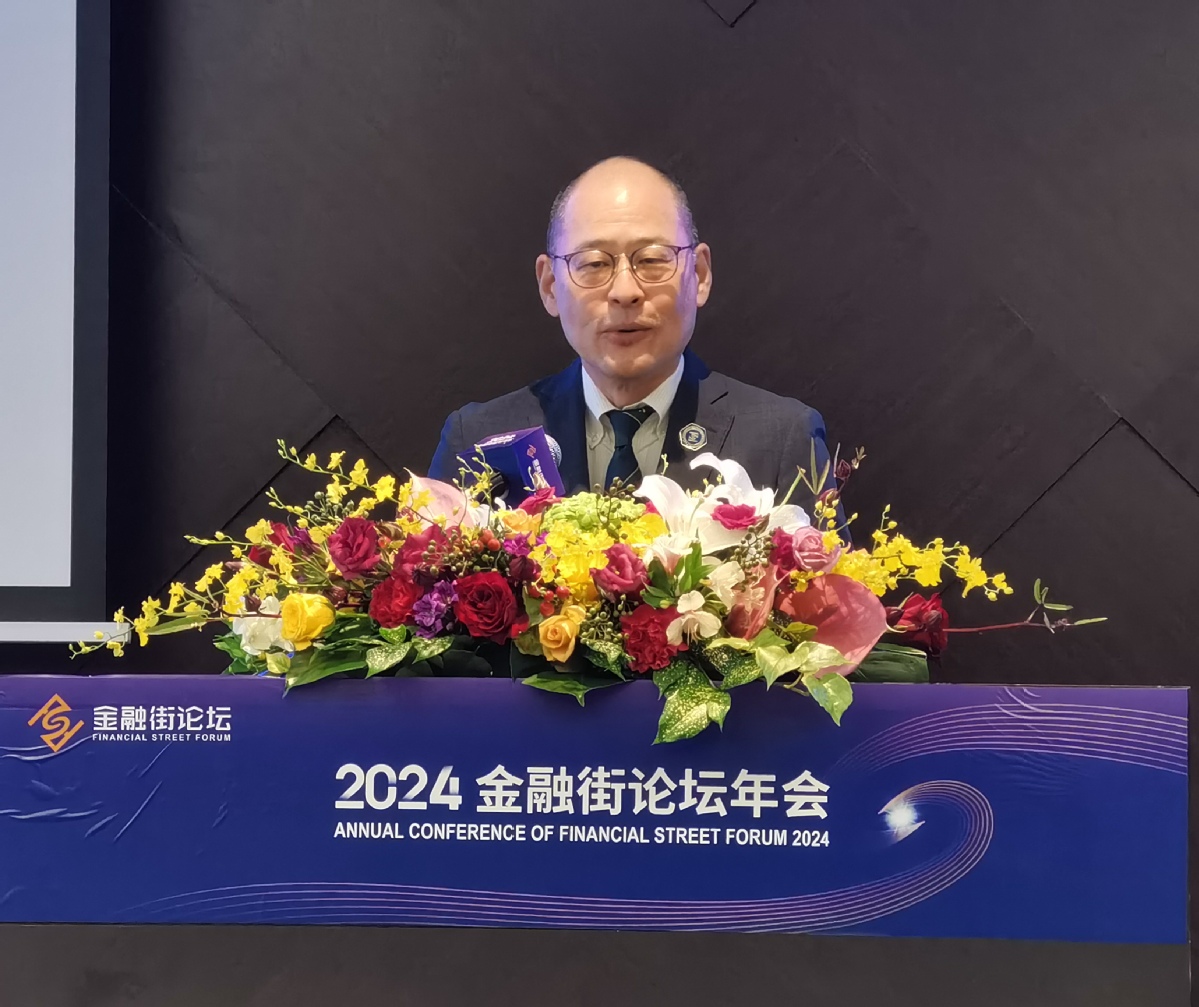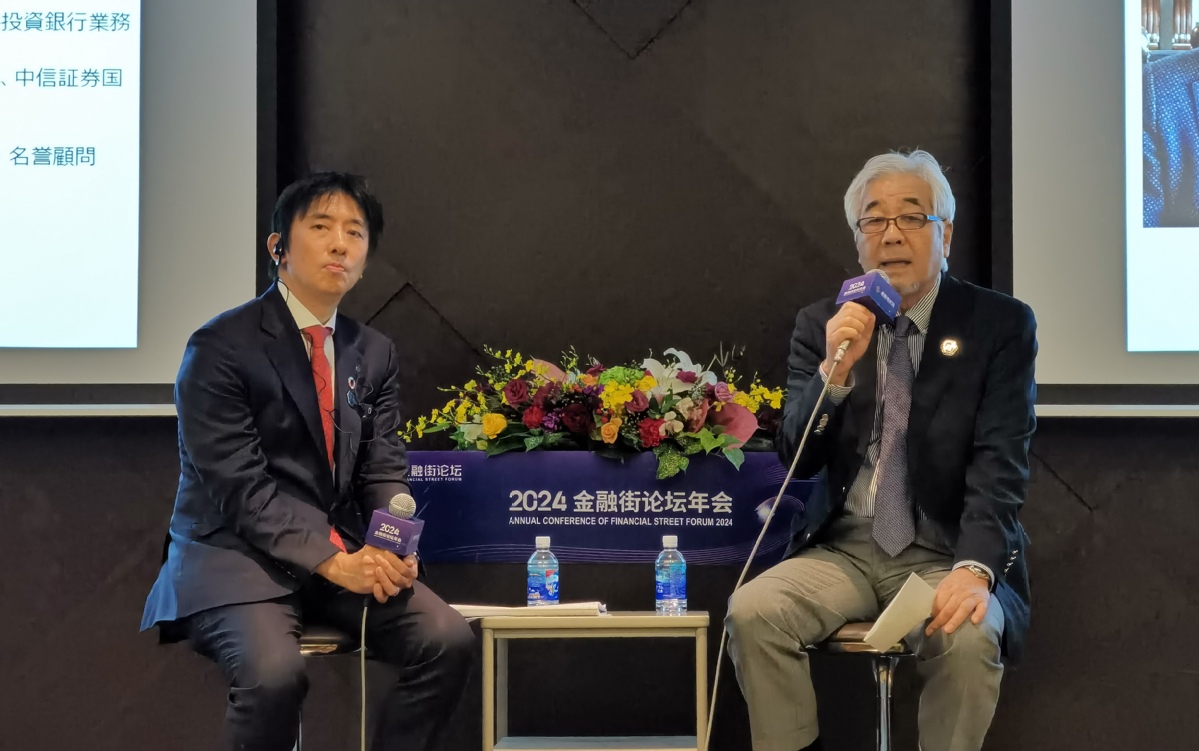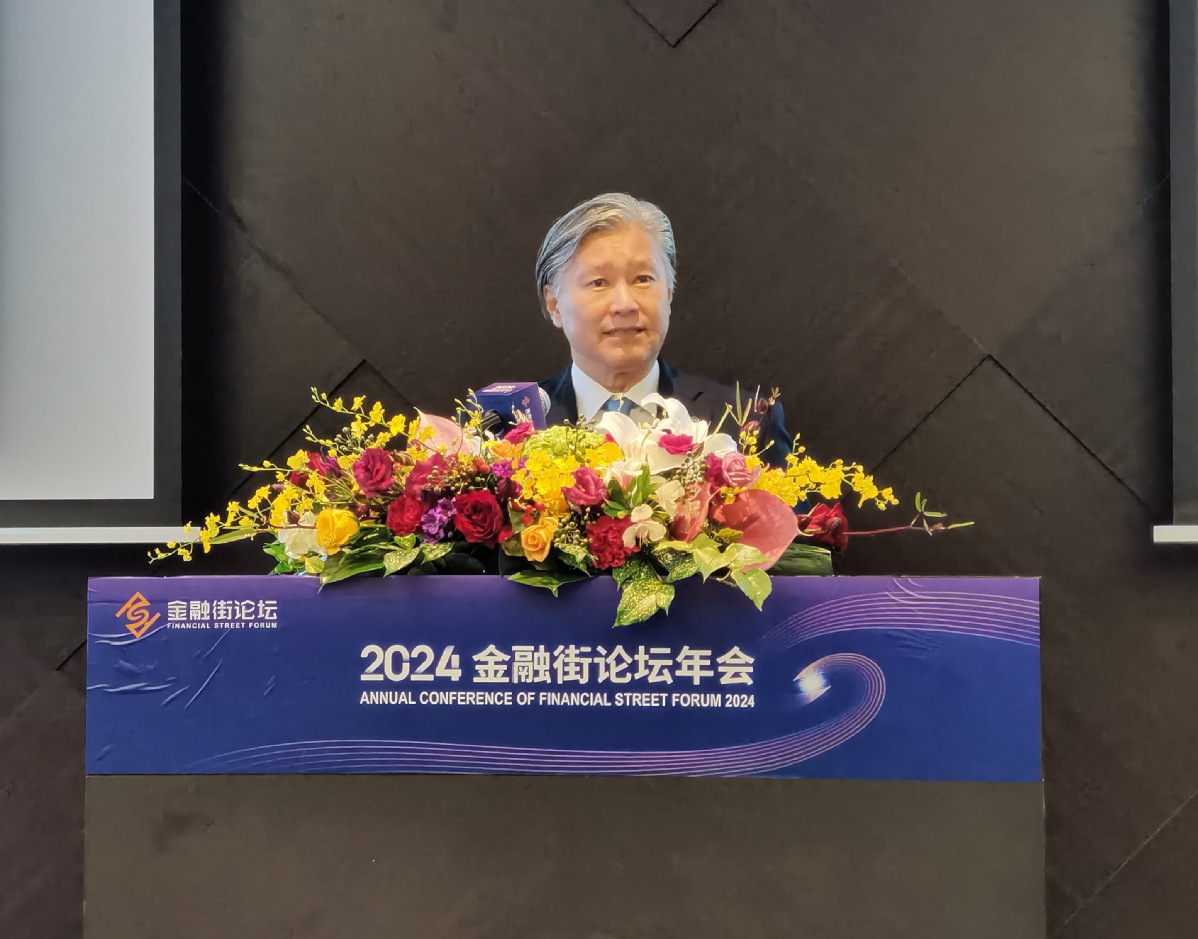
At a parallel forum, held in Tokyo on Friday during the Annual Conference of Financial Street Forum 2024, Chinese and Japanese experts agreed that the economic and financial cooperation between the two nations is built on a strong foundation with vast potential for growth.
Wang Changqing, chairman of CSC Financial Co Ltd, noted that the parallel forum aimed to deepen China-Japan economic and financial collaborations while jointly planning a roadmap for future developments. The objective of the forum was to create an efficient, open platform to foster mutual trust and cooperation in these sectors between the two countries.
Wang highlighted that China and Japan have long enjoyed a solid foundation for economic and financial cooperation. Since the early 1980s, following China's reform and opening-up, many Japanese financial institutions and companies established branches in China, with more Japanese counterparts expected to join the Chinese market.
He further pointed out that the two countries have ample opportunities for cooperation and complementary strengths in the fields of technological innovation and green economy. In particular, there is significant potential for deepening cooperation in carbon peaking and carbon neutrality, where both nations can share technologies and policy experiences to jointly advance green industry development.
In terms of digital economy and technological innovation, Wang emphasized that there are promising prospects for collaboration in areas such as artificial intelligence, big data, e-commerce and cloud computing.
He also noted that China's capital markets have made remarkable progress, and moving forward, these markets will continue to open up, enhancing their level of internationalization. The potential for greater capital market cooperation between China and Japan is set to grow.

In April 2019, the first China-Japan Capital Markets Forum was held in Shanghai, and in June 2019, ceremonies were held in both Tokyo and Shanghai to mark the launch of China-Japan ETF Connectivity. The initial batch of four Chinese and four Japanese products were listed and began trading on the Shanghai Stock Exchange and the Tokyo Stock Exchange.
Satoru Shibata, senior counselor for Japan and China financial cooperation at the Financial Services Agency of Japan, expressed hope that the two nations will deepen their financial sector cooperation, including expanding the ETF portfolio and exploring more financial products in the future.
Shibata noted that collaboration in the securities markets between China and Japan is well underway. This cooperation goes beyond government-level initiatives and includes stock exchanges and securities companies, creating a multi-layered, comprehensive system of collaboration.
As a platform for both nations' securities regulators and market players to foster practical capital market cooperation, the China-Japan Capital Markets Forum has already been held three times. Shibata hopes for more dialogue between Japan and China on this platform.
"I believe there will be increased people-to-people exchanges between the two countries, leading to better cooperation in the securities sector. Finance and the real economy are closely linked, and there is still significant room for further progress between Japan and China," Shibata said.
Yang Bojiang, director of the Institute of Japanese Studies at the Chinese Academy of Social Sciences, emphasized that China-Japan economic and financial cooperation holds more than just economic importance — it carries strategic value for maintaining peace and stability.
"Cooperation between China and Japan is not only essential but also filled with potential and feasibility. The complementarity in their economic and industrial structures still outweighs the competition, enabling mutual benefit and win-win outcomes," Yang explained.
ALSO READ: Japan's biggest union group targets 5% wage hikes next year

He noted that both countries could pursue deeper cooperation on common challenges arising from changes in their economic and social landscapes. For example, they could strategically align and institutionalize their efforts in industries such as healthcare and elderly care. Yang also suggested that China and Japan should explore further collaboration in formulating rules for international cooperation.
Huang Wentao, chief economist at CSC Financial, highlighted China's emphasis on expanding economic cooperation with foreign nations. Recent policy breakthroughs have included allowing and encouraging foreign institutions, particularly in the telecommunications and healthcare sectors, to enter the Chinese market. Through this institutional openness, China is facilitating high-level exchanges in trade, technology, talent and innovation, all of which contributes to its high-quality development.
China's 14th Five-Year Plan (2021-25) prioritizes the accelerated development of nine strategic emerging industries, including next-generation information technology, new energy and new materials. Huang pointed out that Japan holds leading technologies in these key areas.

He added that Japan's advanced and mature technologies in high-end manufacturing, innovative pharmaceuticals, healthcare, elderly care, electronics, carbon neutrality and modern agriculture provide a solid foundation for China-Japan cooperation. The future for collaboration is vast.
Additionally, Japan's successful experience with its long-term care insurance system presents a significant opportunity for cooperation between the two countries in the field of elderly care finance.
Hou Yunchun, former deputy director of the Development Research Center of the State Council, emphasized that the growing demand for healthcare, elderly care services and financial products among the elderly populations in both China and Japan, opens up broad opportunities for financial cooperation in the silver economy. He urged both governments to strengthen policy communication and coordination to provide solid policy support for this cooperation.

In recent years, as China's overseas investments have increased, Chinese companies have been monitoring promising industries in Japan. Kenji Abe, chief strategist at Daiwa Securities, noted that Japan is gradually emerging from deflation, with the central bank beginning to raise interest rates, although this process is still in its early stages. As bank's interest rates continue to rise, the outlook for Japan's financial sector appears to be bright.
Abe also highlighted Japan's strengths in the semiconductor and chip manufacturing industries, which offer significant long-term investment opportunities.
While Japan faces a labor shortage in the long term, companies are heavily investing in digital transformation to enhance productivity. The focus on digitalization positions IT companies for strong performance, with the supply of IT systems emerging as a promising sector, he said.
ALSO READ: Report: Japan's labor shortage to reach 3.84 million workers by 2035
Tatsuhito Tokuchi, consulting senior fellow of the Asia Pacific Initiative at International House of Japan, echoed Abe's sentiments, noting the significant potential in Japan's semiconductor and chip industries, along with growing interest in artificial intelligence as demand steadily increases.
Tokuchi pointed out that new manufacturing industries are developing in Japan's Tohoku region, particularly those related to AI, semiconductors and chips, which are expected to positively impact the Japanese economy.
In addition, Tokuchi sees long-term growth in Japan's hotel, restaurant and tourism industries. Spending by foreign visitors to Japan reached 5.3 trillion yen ($35.44 billion) in 2023, making up nearly 1 percentage of Japan's Gross Domestic Product. Many of Japan's tourism resources have yet to be fully developed, and he believes that more foreign tourists will visit Japan in the future.
He emphasized the importance of communication between the governments of China and Japan at all levels. "This will help businesses feel confident that trading in China, investing in China and investing in Japan, within the bounds of government regulations, is free, stable and secure," Tokuchi said.


